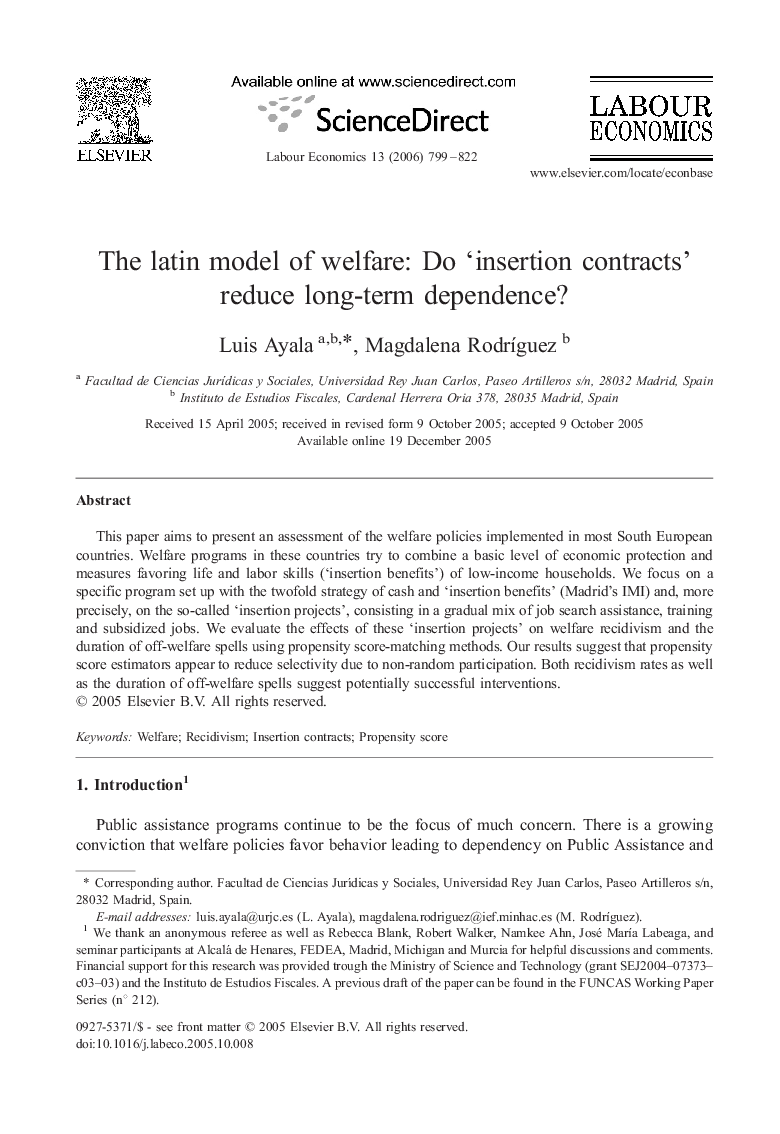| Article ID | Journal | Published Year | Pages | File Type |
|---|---|---|---|---|
| 971820 | Labour Economics | 2006 | 24 Pages |
Abstract
This paper aims to present an assessment of the welfare policies implemented in most South European countries. Welfare programs in these countries try to combine a basic level of economic protection and measures favoring life and labor skills ('insertion benefits') of low-income households. We focus on a specific program set up with the twofold strategy of cash and 'insertion benefits' (Madrid's IMI) and, more precisely, on the so-called 'insertion projects', consisting in a gradual mix of job search assistance, training and subsidized jobs. We evaluate the effects of these 'insertion projects' on welfare recidivism and the duration of off-welfare spells using propensity score-matching methods. Our results suggest that propensity score estimators appear to reduce selectivity due to non-random participation. Both recidivism rates as well as the duration of off-welfare spells suggest potentially successful interventions.
Keywords
Related Topics
Social Sciences and Humanities
Economics, Econometrics and Finance
Economics and Econometrics
Authors
Luis Ayala, Magdalena RodrÃguez,
